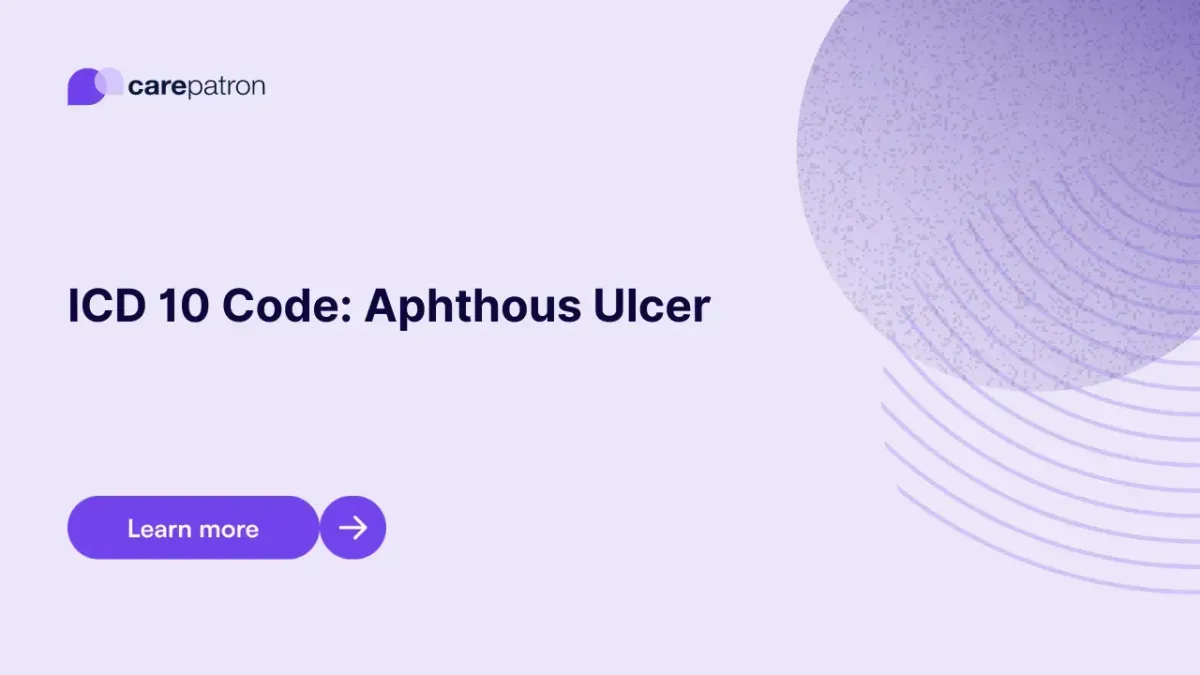
Aphthous Ulcer ICD-10-CM Codes | 2025
Learn about ICD-10-CM code K12.0 for aphthous ulcers (canker sores), symptoms, causes, billing info, and how providers diagnose and treat these mouth lesions.
Use Code
Commonly asked questions
Aphthous ulcers (canker sores) occur inside the mouth and are not contagious, while cold sores, caused by the herpes simplex virus, appear on the lips or around the mouth and are highly contagious. Cold sores also tend to form blisters, whereas aphthous ulcers present as flat, painful lesions with a white or yellow center.
Most aphthous ulcers heal on their own within 7 to 14 days without scarring. Severe or recurrent cases may take longer and sometimes require medical treatment.
Healthcare professionals typically recommend topical corticosteroids, antiseptic mouthwashes, or oral analgesics to reduce pain and inflammation. In chronic or severe cases, systemic treatments or investigations for underlying conditions may be necessary.
EHR and practice management software
Get started for free
*No credit card required
Free
$0/usd
Unlimited clients
Telehealth
1GB of storage
Client portal text
Automated billing and online payments
